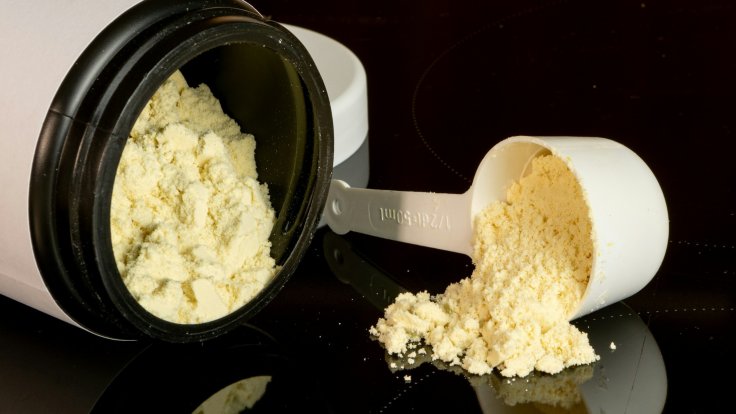Are Whey Protein Powders Safe? New Report Says No Due To Dangerous Levels of Lead — Other Brands To Avoid
If you're a gym rat and loves protein powder, here's what you should know

A new investigation by Consumer Reports (CR) has raised serious concerns about the safety of whey protein powders and other popular supplements. The study, released on 14 October 2025, found that most tested products contained unsafe levels of lead and other toxic metals.
Led by Tunde Akinleye, a chemist and food safety researcher at CR, the report revealed that over two-thirds of 23 protein products tested had more lead per serving than what experts consider safe.
The findings come as more people in the United States rely on protein powder for fitness and diet goals. According to CR, contamination could stem from soil, water, and poor manufacturing practices, worsened by weak supplement regulations.
Whey Protein Contains High Levels of Lead
Whey protein remains one of the most consumed supplements across the US. The industry has grown rapidly, now worth between $5 billion (£3.7 billion) and $10 billion (£7.4 billion). Gyms, health shops, and online stores all promote these products as essential for muscle recovery and diet balance. Yet CR's study shows that contamination has worsened compared to its last test 15 years ago.
Half of the dairy-based products, including whey, exceeded the recommended daily limits for lead. 'It's concerning that these results are even worse than the last time we tested', said Akinleye. He added that many users may unknowingly expose themselves to unsafe doses through daily use.
The study found that Optimum Nutrition's Serious Mass (Whey Protein) contained 8.5 micrograms of inorganic arsenic per serving — more than double CR's safe daily limit. MuscleMeds Carnivor Mass, a beef-based blend often used by whey consumers, exceeded 200% of the lead limit.
However, some options such as Optimum Nutrition Gold Standard 100% Whey and Momentous Whey Protein Isolate were listed as safer for regular consumption.
Other Protein Powder Brands To Avoid
According to USA Today, the study also listed several protein powders with alarming contamination levels. Among the worst were Naked Nutrition Vegan Mass Gainer, with 7.7 micrograms of lead per serving, and Huel Black Edition (Chocolate), with 6.3 micrograms. Both exceed CR's safety threshold by more than 1,000%.
Other products with high lead content include Garden of Life Sport Organic Plant-Based Protein (Vanilla) and Momentous 100% Plant Protein (Chocolate). These were labelled as safe only for occasional use.
For users looking for better choices, CR identified Transparent Labs Mass Gainer, Owyn Pro Elite High Protein Shake, and Dymatize Super Mass Gainer as options with lower contamination.
Side Effects of Too Much Lead from Protein Powders
Health experts warn that even small doses of lead can build up in the body and cause lasting harm. Dr Rose Goldman, Associate Professor of Medicine at Cambridge Health Alliance, said that repeated exposure poses the greatest risk, especially for children and pregnant women.
High lead levels can cause neurological issues, kidney damage, and high blood pressure. Prolonged use may also lead to reproductive problems and immune suppression. 'Even small amounts can add up over time,' Goldman warned.
Professor Nicholas Burd from the University of Illinois added that supplement users face added danger: 'When you fortify your diet with supplements, you're putting yourself at greater risk.'
What Consumers Should Do
Experts advise reducing or stopping daily protein powder intake. 'For many people, there's more to lose than you're gaining', said Akinleye. He recommended choosing safer whey-based products and limiting consumption to a few times per week.
Nutritionists also encourage meeting protein needs through natural foods like fish, eggs, beans, and Greek yoghurt. The recommended dietary allowance remains 0.8 grams per kilogram of body weight.
Brian Ronholm, CR's Director of Food Policy, urged stronger government action. 'The FDA can take action if it finds unsafe lead levels, but the lack of enforceable standards means it doesn't happen nearly enough.'
Until tighter regulations exist, experts say consumers must read ingredient labels carefully and choose tested brands. For now, moderation remains the safest approach to whey and other protein powders.
© Copyright IBTimes 2025. All rights reserved.





















